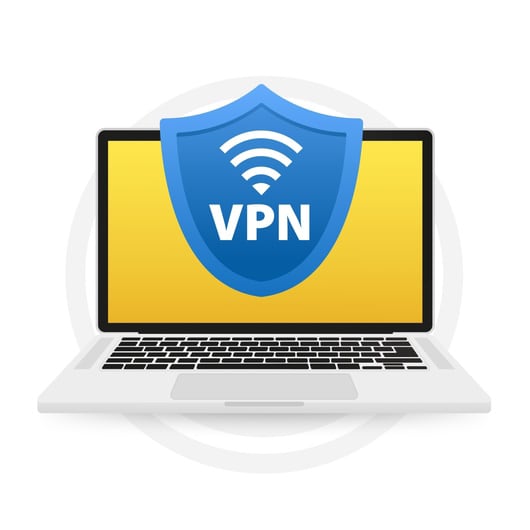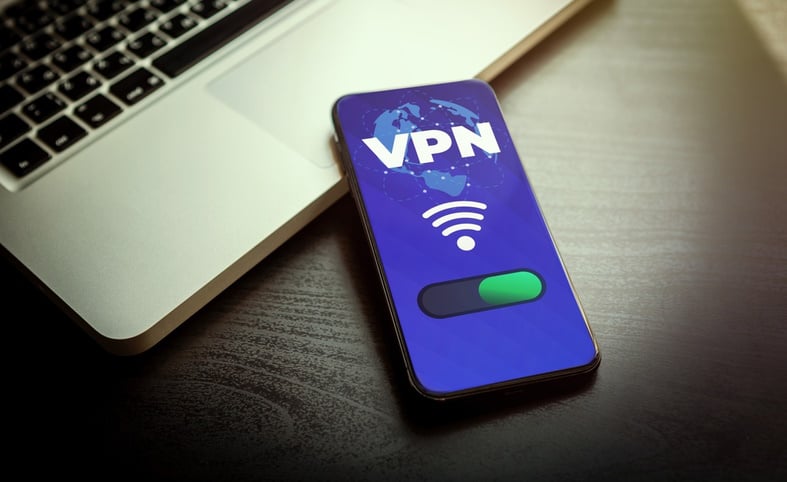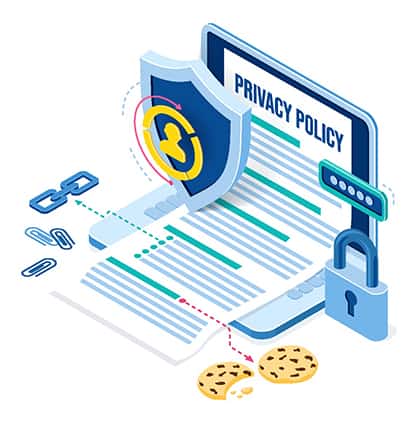Cyber threats have dramatically changed in recent years, and it’s no longer a question of if you’ll be targeted, but when. The sobering reality is that cyberattacks aren’t just something that happens to large corporations or someone you vaguely know, you could very well be next. Every 39 seconds, a cyberattack happens somewhere in the world and over 75% of targeted cyberattacks start with an email, making your inbox a potential gateway for cybercriminals.
However, using a Virtual Private Network (VPN) is an essential tool for protecting your online privacy and security. A VPN creates an encrypted tunnel between your device and a VPN server, protecting your browsing data from prying eyes. It masks your IP address, making it difficult for websites, advertisers, and potential hackers to track your online activities or determine your location. The issue many users have is whether they need this protection across all their devices.

Table of Contents
The Growing Importance of Mobile VPNs
Smartphones and tablets have become our main devices for accessing the internet, and the need for mobile VPNs has increased significantly.
- Public Wi-Fi vulnerability: We typically connect our mobile devices to public Wi-Fi networks in cafes, airports, or hotels. These networks are notoriously insecure and prime targets for hackers. In 2023, personal data breaches using public wifi accounted for 25% of cafes, 23% of airports, and 20% of hotels. According to Techopedia’s Jacob O’Shea, some of the top VPN solutions for Android in 2024, like NordVPN and Surfshark, encrypt your internet connection, preventing hackers from intercepting your device and accessing your personal data.
- Continuous connectivity: Our smartphones are almost always online, continuously sending and receiving data, which increases the risk of data interception.
- Sensitive information on the go: We increasingly use our mobile devices for sensitive tasks like online banking, shopping, and accessing work emails.
- Geo-restriction bypassing: Mobile VPNs allow users to access geo-restricted content while traveling or living abroad, just like desktop VPNs.
- Protection against mobile-specific threats: Mobile devices face unique security challenges, such as malicious apps, riskware from apps found in App stores, and mobile network vulnerabilities, which VPNs can help reduce.
Why Desktops Need VPNs
VPN services have typically been linked to desktop computers due to their use for activities like online banking or work-related tasks. Since desktop computers are usually connected to home or office WiFi networks that may not always be secure, they are often used for tasks needing an ongoing internet connection, making VPN usage essential for consistent protection.
Using a VPN can be quite helpful when working on desktop computers at the office or from home:
- Using a VPN secures your internet connection and safeguards sensitive company data from cyber threats, like hackers and cybercriminal activities, a crucial step when dealing with confidential files or financial and proprietary information.
- Working securely can be achieved using a VPN for employees who are not in the office but need to access the company’s networks and resources, from home or other off-site locations to ensure safe work practices are maintained at all times.
- Complying with regulations is crucial in certain sectors where data protection is a top priority and one way to achieve this is, by using a VPN for secure data transmission to fulfill compliance standards.
- Using VPN services can help conceal your device’s IP address to enhance privacy and security, making it so much harder for others to monitor your activities or track your exact location.
- To avoid restrictions, some internet service providers might reduce the speed of specific online activities but using a VPN can help disguise your online behavior and prevent this from happening.

Considerations for Choosing a VPN
Multi-Device VPN Support
Many VPN services now provide options for safeguarding devices all at once with just one subscription plan, addressing the need for complete protection on all your gadgets. For example, NordVPN lets you connect up to 6 devices at a time, whereas ExpressVPN allows for 8 simultaneous connections, and Surfshark offers unlimited device connections simultaneously at no extra charge. This feature makes it convenient to safeguard both your mobile device and desktop without having to pick one over the other.
Router VPNs
For comprehensive protection of all your devices, including those that don’t natively support VPN apps, like your smart TVs or gaming consoles, consider setting up a VPN on your router. Not only does it protect mobile phones and desktops but it’s connected to your home network and it only counts as one device towards your VPN’s simultaneous connection limit. The biggest advantage is that it provides VPN protection for devices that don’t typically support VPN apps.
This is easier said than done. Setting up a VPN on a router is far more technically challenging than installing apps on individual devices. Some VPN providers, like ExpressVPN, offer dedicated router apps to simplify this process.
Device Compatibility
When choosing a VPN, it’s crucial to ensure it supports all the operating systems you use. This includes popular platforms like Windows, macOS, iOS, and Android, as well as less common ones like Linux. Compatibility across devices allows you to maintain a consistent level of security and privacy regardless of which device you’re using.
Number of Simultaneous Connections
The number of simultaneous connections a VPN allows is a key factor to consider. This determines how many devices you can protect at once under a single subscription. Some VPN providers limit you to just a few connections, while others offer unlimited devices. If you have multiple devices or want to share your VPN with family members, look for a service that offers a higher number of simultaneous connections.
Performance
VPN performance is critical for a smooth online experience. Look for VPNs that offer fast speeds and minimal impact on your internet connection. The best VPNs typically cause no more than a 10-25% reduction in speed. Factors affecting VPN speed include server locations, server load, and the VPN protocol used. Some VPNs offer speed test tools or money-back guarantees, allowing you to test their performance before committing.
Security Features
For VPN services, security should be a priority without compromise. Look for VPN providers that have encryption protocols in place; preferably AES 256. A kill switch is essential as it automatically cuts off your internet connection if the VPN connection fails to prevent any data exposure. Additionally, make sure the DNS leak protection is enabled to safeguard your DNS requests that are channeled through the VPN ensuring your privacy is maintained.
Privacy Policy

A VPN’s privacy policy is a critical aspect often overlooked by users. Choose a VPN with a strict no-logs policy, meaning they don’t store any data about your online activities or connection logs. Ideally, this policy should be verified by independent audits, providing an extra layer of trust. Be wary of free VPNs, as they often monetize user data. Read the privacy policy carefully, looking for clear statements about data handling and retention.
Server Network
The size and distribution of a VPN’s server network can significantly impact your experience. A larger server network generally means better performance and more options for bypassing geo-restrictions. It allows you to connect to servers closer to your physical location, potentially improving speed. Additionally, a diverse server network allows access to content from various countries, which is particularly useful for streaming services or accessing region-locked websites.
Conclusion
Using a VPN on both mobile and desktop devices is increasingly important. The use of multi-device VPN support makes it easier and more cost-effective to protect all your devices. While desktop VPNs remain crucial for many users, the growing reliance on mobile devices for sensitive tasks makes mobile VPN protection equally vital. By carefully considering your needs and the features offered by various VPN providers, you can choose a solution that offers comprehensive protection across all your devices.
